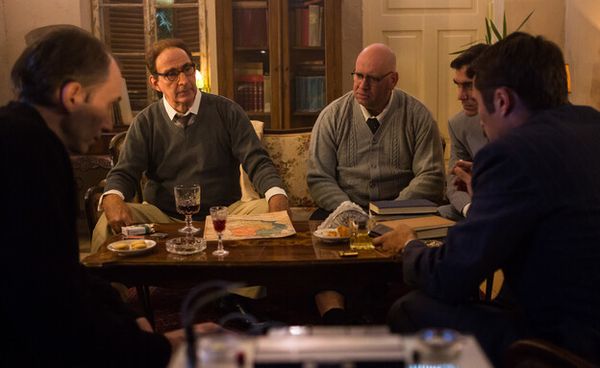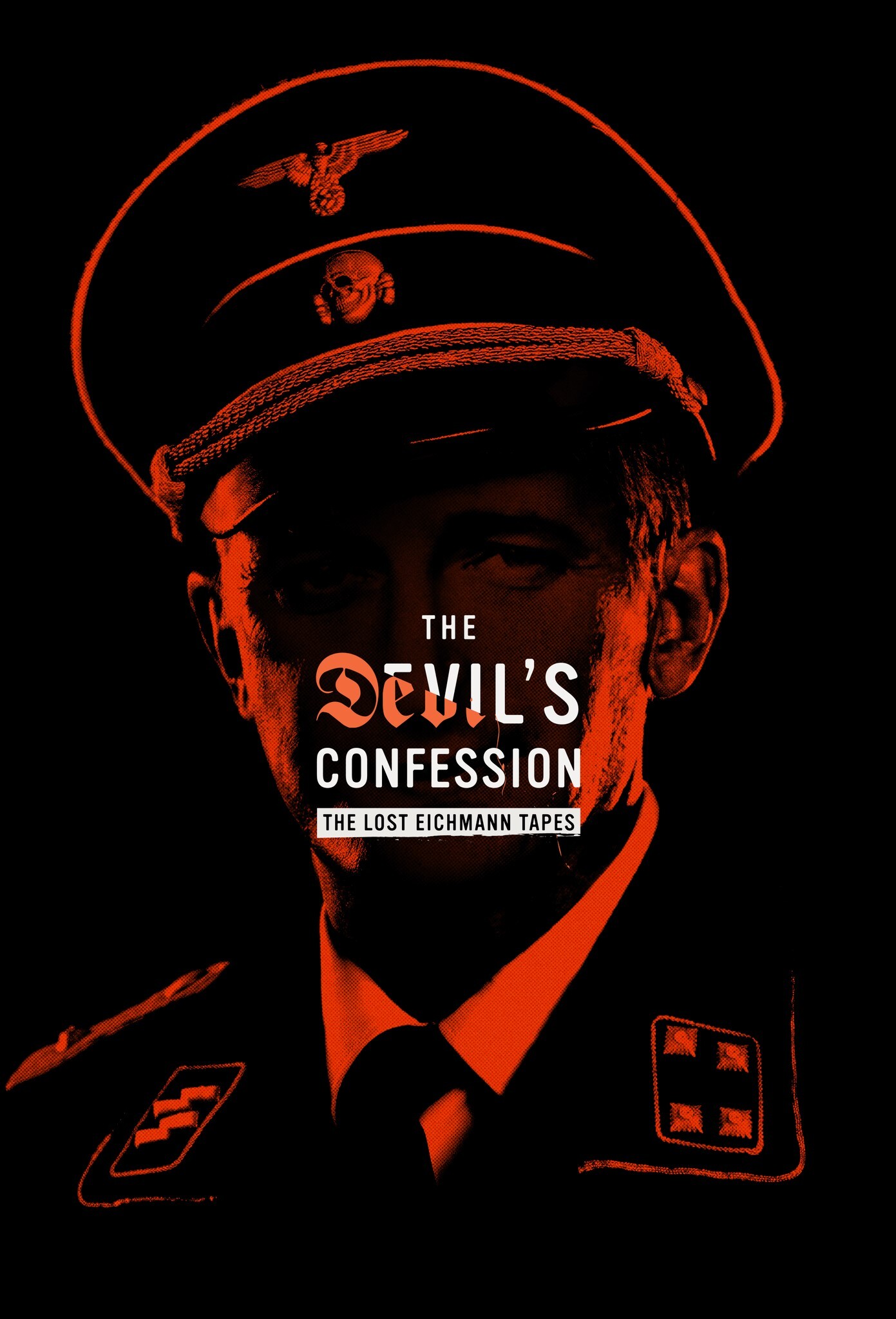Eye For Film >> Movies >> The Devil’s Confession: The Lost Eichmann Tapes (2022) Film Review
The Devil’s Confession: The Lost Eichmann Tapes
Reviewed by: Jennie Kermode

Originally presented as a television series but screened as a single piece at the 2023 London Jewish Film Festival, The Devil’s Confession tells an extraordinary story in a style which robs it of much of its power. Overwrought dubbing which distorts what was originally said competes with a heavy-handed score to make material of tremendous historical importance feel like something out of a soap opera – but if you can stick with it, there’s a good deal here worthy of attention.
It is not, thankfully, the only means whereby one can now get access to the aforementioned material, but it does supply context which is both historically interesting and psychologically intriguing. Saskia Sassen narrates key stretches. A notable figure in her own right, for her work in the fields of sociology and economics, she’s also the daughter of Willem Sassen, a Nazi propagandist who remained loyal to his party after the Second World War, when he started a new life in Argentina. Here she remembers the various Germans who used to visit their home, most particularly Adolf Eichmann. In audio tapes of their conversations, we can hear her playing with her sister in the background.

How do people who have wielded that level of power over others adjust to losing it? Some psychologists theorise that they don’t – that in order to hold the terrifying truth of their own vulnerability at bay, they create a belief that they are untouchable, taking risks to reinforce it. Eichmann might have thought that he was genuinely safe in Argentina, and would never face trial; or he might simply have been proud of the actions that horrified most of the world. At any rate, the conversations he had with Sassen were intended to contribute to a book. They would later be used to convict him. The audio itself was not used in court, however, and neither was much of the material transcribed from tapes which were subsequently reused. The selling point of this documentary is the opportunity to hear more of it, and – by hearing his voice and watching actors recreating some of the conversations – to gain a deeper understanding of the sort of person who might commit such atrocities.
The film falls short of this promise. Aside from the aforementioned problems, there just isn’t much new material here. If there were reasons for not using more – and one can imagine a few good ones – it would have been useful to have them discussed here. In addition, there is a challenge which even the most skilled documentarian might struggle to overcome: there is really not very much to learn. Eichmann comes across as one of those people who mistake dangerous ideas for sophisticated ones, imagining that other people treat one another with consideration simply because it hasn’t occurred to them to do otherwise. He’s not a deep thinker; the fact that he corrected the transcripts of the conversations in his own handwriting neatly sums up the limits of his ability to grasp the bigger picture. There is nothing diabolically clever, nothing meaningful at all to be found here – just an absence of humanity.
This much has, of course, been observed about him before, and we hear some of it again in the latter part of the production, which deals with his trial. This gets rather repetitive, and one imagines that most viewers interested in this film will have seen it before. Again, Eichmann himself, whilst horrifying, is dull. It is other testimony and the stories told in relation to other witnesses which grips, and the film could have done with focusing more on this. There is no need to overplay it. Discussion of the days during the extermination of 400,000 Hungarian Jewish people, towards the end of the war, when so many corpses were burned at Auschwitz that the smoke did not rise but settled in a thick black blanket over the camp, is powerful enough without elaboration. But there are other elements, more rarely encountered.
The interactions between Eichmann and Rudolf ‘Rezső’ Kasztner, which enabled some of those people to reach safety, are explored in some detail, along with the controversy around them. Was the journalist a hero for saving people or a monster for collaborating with the enemy? His daughter Suzi, who would go on to face violent proxy reprisals, shares her thoughts, and there is some reflection on the hostility which survivors of the concentration camps faced in Israel, of all places, where they were treated as if they must have failed in some way. Here the film touches on another interesting element of psychology, Just World Fallacy, whereby people are held responsible for their own suffering because that enables others to imagine that they can control their fates and avoid such things ever happening to them.
With all these interesting ideas brought together in the context of the Eichmann conversations and trial, this could have been an excellent documentary. It is deeply unfortunate that it has been so clumsily handled, but as long as you don’t approach it expecting something better, it’s still worth a watch.
Reviewed on: 02 Feb 2024If you like this, try:
I Have Never Forgotten You - The Life And Legacy Of Simon WiesenthalThe Kiev Trial
Labyrinth Of Lies
















